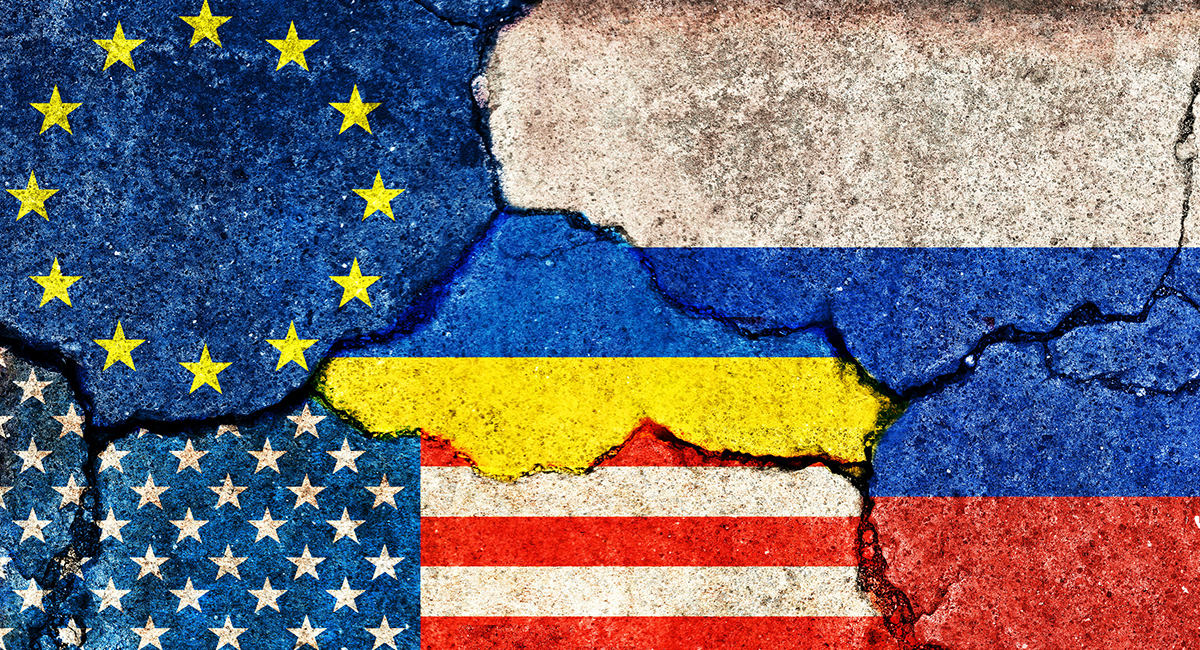Instead of a quick Russian victory, Russia’s second invasion of Ukraine seems to be settling into a drawn-out slugfest. After Ukrainian soldiers surprisingly thwarted Russia’s offensive on Kyiv, Ukraine’s capital city, the gleeful United States rallied NATO nations to provide the Ukrainians with tens of billions in weapons technology.
After some Ukrainian battlefield successes in throwing back the Russians in the east and south of Ukraine, which gained back some Russian-occupied territory, the United States and its allies gradually succumbed to the vision of decisively handing the Russian Bear with a stinging military defeat.
Yet, Russia still has some advantages. By essentially invading Crimea and parts of industrialized eastern Ukraine in 2014 and combining this conquered territory with that of its initial gains in the east and south in the 2022 invasion, the Russians have given the Ukrainians a Herculean task to recapture such a large land area against a more significant and sometimes well-dug-in occupying force.
Unless the reported low morale of the Russian force causes it to suddenly collapse—as German troops did in 1918 during World War I—the war likely will turn into a long, bloody slog.
Although the West has emotionally rallied to Ukraine’s colors against a more formidable aggressor by providing tens of billions in military, economic and humanitarian aid, the United States now must make a hard-nosed analysis of whether its security requires a clear-cut Ukrainian victory, whether that’s even a realistic possibility, and if not, what a settlement of lands between the two countries would look like to create the best chance for a peaceful solution to the conflict that would endure.
The answer to the first question is that U.S. security does not require a resounding Ukrainian victory. When the underdog Ukrainians initially thwarted a quick Russian victory by throwing back the invaders short of Kyiv, Russia had already lost the war politically. Furthermore, the war to date has demonstrated that Russia’s military is hollow, grossly corrupt and incompetent, thus significantly lessening its threat to the faraway United States.
Thus, any remaining Russian threat outside the nuclear realm is mainly to Europe, not the United States. Yet even here, Russia’s economy is less than the size of tiny Italy’s, thus allowing a prosperous Europe to more than support the military capability needed to deal with a demonstrably stoppable Russian force, which after its debacle in Ukraine would be certifiably crazy to invade any country in Europe, including Moldova, soon.
Most wars in history are concluded by negotiated settlements, not swashbuckling triumphs. This war will likely end no differently—but only when both sides are exhausted, which could take some time because Ukraine understandably wants to recover all its territory and Vladimir Putin, insulated somewhat from domestic pressure, wants to salvage something he can claim as a victory. And if America’s wealthy European allies— their combined economies are larger than that of the United States—feel that an overwhelming Ukrainian victory is needed for their security, they can completely take over funding the war from the United States.
Currently, the United States provides more military aid to Ukraine than all other countries combined. If the Europeans lack some of the weapons needed by Ukraine, they can buy them from the United States and send them on. Through several recent presidential administrations, the U.S. military establishment has been trying to “pivot to Asia” to deal with the much bigger threat of a rising China, but the strategically overstretched United States—U.S. national debt has reached $31.5 trillion—has repeatedly been diverted from this objective by self-inflicted quagmires in the Middle East and providing tens of billions of aid to Ukraine.
Second, the Russian fighting force has been shown to be a paper tiger, despite its large mass alone likely being able to lock up the war with Ukraine in stalemate for perhaps years—much like Russia’s other foreign conflicts.
Third, a better solution would be to reach a settlement that gives both countries a face-saving way out and creates the best chance for long-term stability—that is, the absence of future wars over the same ground.
In the longer term, the two exhausted parties might agree to hold a referendum, or referendums, in Russian-speaking areas of Ukraine to let the people decide whether to be part of Russia, Ukraine or even a newly independent country. Such self-determination can often help settle conflicts based on ethnic or religious strife.

















